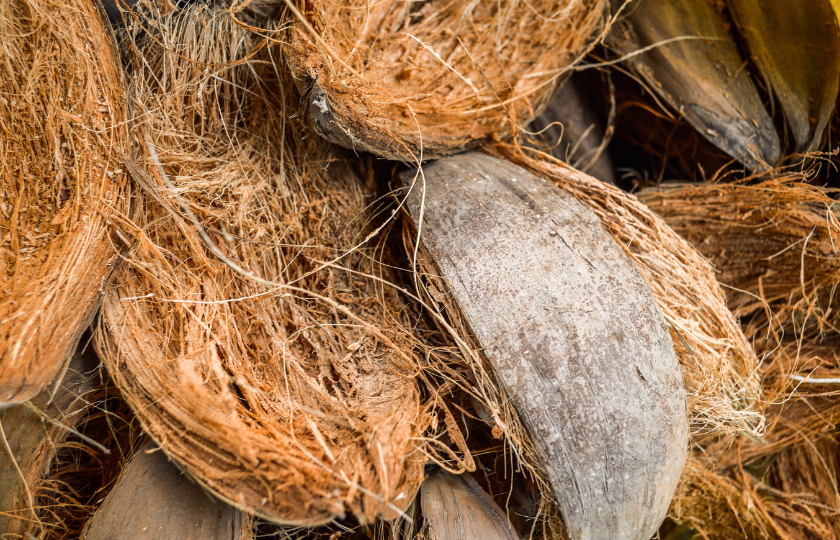Following the launch of its sustainable textile yarn made from pineapple leaf waste, Singapore startup Nextevo has formed an exclusive tie-up with Indonesian coconut product manufacturer Sambu Group and plans to convert coconut husk waste into sustainable products such as cocopeat, coir fibres, and crushed husks.
Peatmoss is a commonly used soil amendment for gardening. It comes from natural peatlands, considered essential in combating climate change, trapping twice as much carbon in the atmosphere while covering a small portion of the landmass.
Unfortunately, extracting peat moss requires scraping the top layer of living sphagnum moss, a habitat for plants and animals. In addition, while peat moss is a renewable source, it can take hundreds to thousands of years to re-develop. That is why there have been plights to ban peat moss extraction and switch to sustainable alternatives like cocopeat.
“Our key differentiation is in our ability to work directly with collective small-holder farmers, plantations, and major coconut processors in Southeast Asia, and to source different types of raw materials in abundance,” said Harold Koh, founder of Nextevo.
“Our recent encounters with several global brands and manufacturers show that there is a drive towards sourcing for materials that contribute to sustainability efforts.”
According to the company, its cocopeat and crushed husks are 100-per-cent natural, renewable and biodegradable, with substrates that improve soil texture and moisture retention. At the same time, its coir fibres can be integrated into mattresses as a biodegradable foam core. In addition, these coconut byproducts can be used for geotextile products that protect the land against surface erosion while supporting moisture absorption, promoting plant growth.
With its network of coconut processing facilities and farmer groups, the startup plans to build a centralised system to collect coconut waste, minimising existing environmental problems while supplementing farmers’ income. The company also plans to tap other coconut producing countries in Southeast Asia, like Thailand and the Philippines.
“In the next three years, we aim to impact the lives of more than 5000 pineapple and coconut farmers or more in Southeast Asia. In addition, we want to impact the world by transforming agricultural waste into sustainable materials and products with scalability that makes sense for both the environment and farmers,” Koh added.



